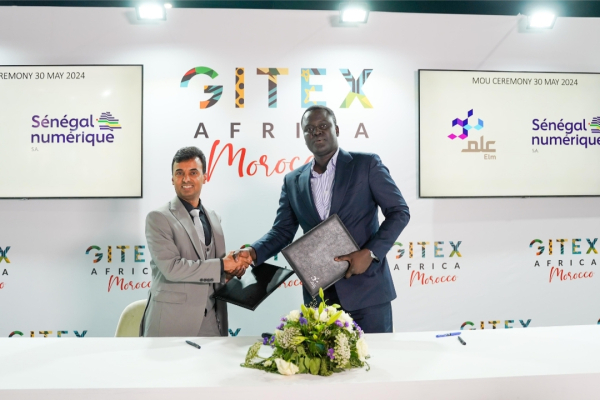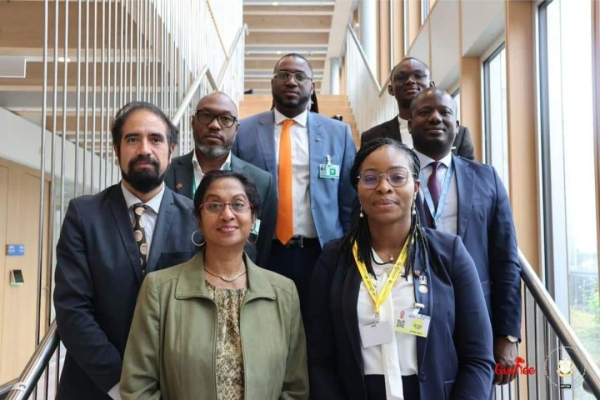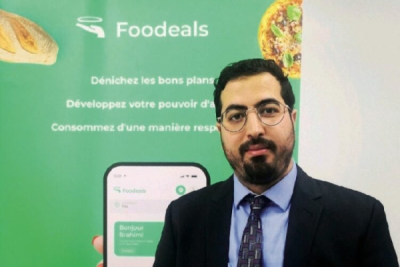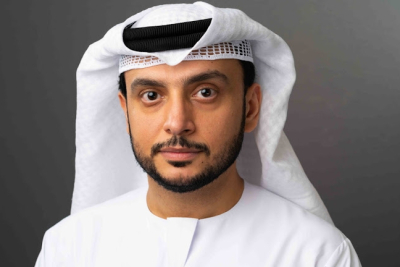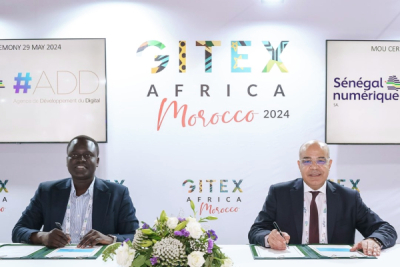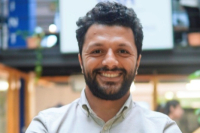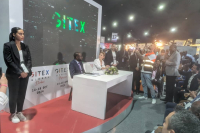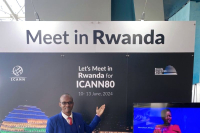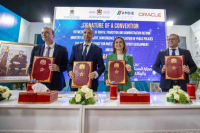At the first edition of Gitex Africa, the two entities formed an alliance to collaborate in the digital sector in Senegal. They signed another agreement a year later for the same purpose.
Sénégal Numérique SA (SENUM SA), the public company responsible for managing digital infrastructure in Senegal, and Elm, a Saudi company specializing in digital solutions, signed a memorandum of understanding on Thursday, May 30, during the second edition of Gitex Africa in Marrakech, Morocco (May 29 to 31).
"The memorandum of understanding, signed by Al-Ameen Al-Hazmi [photo, left], Director of Integrated Solutions at Elm, and Cheikh Bakhoum [photo, right], Director General of Sénégal Numérique, outlines the collaboration between Elm and Sénégal Numérique for the creation and operation of a digital archiving center. They will also seek financial partners to fund the project and develop IT infrastructure for the benefit of Senegalese government agencies," explained he communiqué published by the Saudi firm on Friday, May 30.
This partnership aligns with SENUM SA's objectives for 2025, as outlined in the "Sénégal numérique 2025" strategy document. It will facilitate knowledge exchange between Saudi Arabia and Senegal and stimulate the tech sector to become a driving force in both countries.
This is not the first memorandum signed by the two entities. Last June, during the first edition of the Gitex Africa tech show, also held in Marrakech, they signed a partnership agreement under which the Saudi firm agreed to assist SENUM SA in using technology to boost economic growth, improve public services, empower Senegalese citizens, and promote digital inclusion.
Speaking on the new partnership, Majid bin Saad Al Arifi, official spokesperson and Senior Vice President of Marketing at Elm, stated: "We remain committed to collaborative projects and promoting innovation and growth in the digital sector. We also hope that this partnership will yield tangible economic and social benefits by driving development through innovative technical solutions and Elm's capabilities to enable a digitally connected life."
Adoni Conrad Quenum
Although the e-commerce sector in Africa is promising, it still faces numerous challenges. The development of this sector requires close collaboration between various stakeholders.
The Republic of Guinea plans to collaborate with the United Nations Conference on Trade and Development (UNCTAD) to boost its e-commerce sector. The Guinean Minister of Posts, Telecommunications, and Digital Economy, along with her team, discussed this initiative with Shamika Sirimanne, Director of Technology, Innovation, and Research at UNCTAD, on the sidelines of the World Summit on the Information Society held in Geneva from Monday, May 27 to Friday, May 31.
"The objective of this meeting was to explore avenues of cooperation between Guinea and UNCTAD, particularly in the field of e-commerce. Minister Pricemou presented the state of digitalization in Guinea, highlighting the challenges and opportunities," stated the ministry's communiqué.
During the meeting, Guinea sought UNCTAD's support for developing a regulatory framework conducive to the growth of e-commerce and for enhancing the digital skills of Guineans through technical assistance.
The UN organization welcomed this request and committed to facilitating contacts within the United Nations system to promote digital and postal services in Guinea. Additionally, it recommended close collaboration between the Ministry of Posts and the Ministry of Commerce to foster the development of trade in Guinea.
This meeting between the Guinean Ministry of Digital Economy and UNCTAD is part of the government's ongoing efforts to promote the e-commerce sector in Guinea. This rapidly growing sector was already valued at 10 million dollars in 2020, with an annual growth rate of 20%, according to the Foundation for E-commerce and Distance Selling (Fevad).
Samira Njoya
After years working as a lawyer in England, she returned to Africa to venture into entrepreneurship. She uses technology to empower Black women.
Gisela Van Houcke (photo) is a lawyer and entrepreneur from the Democratic Republic of Congo. She is the founder and CEO of Zuri, a women-led beauty tech platform.
Founded in 2016, Zuri aims to empower Black women through beauty and technology. The platform provides Black beauty entrepreneurs with software tools, branding, supply chain access, and financing needed to enhance their economic mobility and that of their clients.
The idea for Zuri came from an observation by Gisela Van Houcke. "When I came back to Africa, I immediately noticed a gap in the market for extensions and cosmetics, particularly for people with dark skin. People around me were always asking me to bring back extensions and cosmetic products when I traveled. This gap was simply inconceivable; Africa having a large number of people interested in such products," she explains.
Gisèla left her country for the UK in 2003 due to wars and political instability. She studied at Cardiff University, where she earned a bachelor's degree in law in 2013. She then worked as a lawyer at Skadden, Arps, Slate, Meagher & Flom LLP and Affiliates, a UK law firm.
In 2015, she became head of the legal department at BBOXX, a British company developing smart solar solutions for developing countries. After moving to Africa, she resigned in 2017 to dedicate herself fully to Zuri. Today, Zuri has 20,000 clients and employs 60 women.
In 2018, Gisela Van Houcke was named in the Forbes 30 Under 30 list in the business category. She is also listed in the top 50 of Africa's Business Heroes 2023.
Melchior Koba
He advocates for a circular economy in Morocco. Leveraging technology, he encourages Moroccans to adopt responsible consumptio habits.
Moroccan entrepreneur Bentaleb Yassine (photo) is a marketing expert and the founder and CEO of Foodeals, an innovative startup dedicated to combating food waste in Africa.
Founded in 2020, Foodeals connects restaurants, bakeries, supermarkets, and Moroccan citizens, thereby committing to reduce food waste. In collaboration with professionals, its mobile platform offers a variety of menus daily to meet the expectations of its users. On May 29-31, 2024, the startup, represented by Bentaleb Yassine, showcased its solutions at GITEX Africa, a major event held in Marrakech.
In addition to Foodeals, Bentaleb Yassine founded and manages Smartmove Consulting, an independent consulting firm based in Fez since 2015. This firm assists and advises companies, public institutions, and associations in managing their stakeholder relationships.
In 2017, he co-founded Al Fihriya Birdies, a coworking space, incubator, and accelerator for Moroccan startups, where he served as marketing manager until 2018.
Bentaleb Yassine holds a degree in marketing and commercial actions from the National School of Commerce and Management in Settat, Morocco, and a bachelor's degree in marketing from the European Business School in Paris.
His professional career began in 2011 at Banque Centrale Populaire du Maroc, where he worked until 2022. During his tenure at this institution, he held several positions, including prospect acquisition manager, sales representative, and trade finance manager.
Between 2015 and 2017, Bentaleb Yassine was a guest lecturer at the University Sidi Mohamed Ben Abdellah in Fez. Concurrently, he served as a mentor for the employability platform Ta3mal, launched by Silatech and Microsoft, and as a business mentor for Injaz Al-Maghrib, an association promoting entrepreneurship among young Moroccans in public schools.
Melchior Koba
The introduction of new satellite connectivity options is crucial for Africa's development. Enhanced satellite communications can bridge the digital divide, providing reliable internet access to underserved and remote areas.
UAE-based satellite operator Yahsat and Zimbabwe’s SATCOM Technologies have partnered to provide satellite connectivity in Zimbabwe, Yahsat revealed on May 29. This comes just a week after the country authorized Starlink, signaling rapid advancements in the country's satellite communications landscape.
“We are proud to partner with SATCOM Technologies to bring our state-of-the-art satellite connectivity solutions to Zimbabwe. This strategic partnership demonstrates our commitment to improving connectivity across the continent, supporting the digital transformation journey of African nations and increasing access to essential services for all,” said Chief Commercial Officer of Yahsat Sulaiman Al Ali (pictured).
The two companies will be able to work closely with the Zimbabwean government to secure projects in several key sectors, including mining, agriculture, health, and education. The services are expected to go live in June this year.
Satellite technology is important in bridging the digital divide and improving access to essential services in Africa. In its 2022 report ‘Stronger Digital Voices from Africa: Building African Digital Foreign Policy and Diplomacy’, the International non-profit organization Diplo reveals that Africa primarily relies on mobile networks for internet access due to insufficient copper telecom infrastructure. While terrestrial and mobile networks dominate, satellites increasingly provide connectivity, especially in remote areas. It adds that countries like Algeria, Angola, Egypt, and Nigeria are adopting geosynchronous equatorial orbit (GEO) satellites for internet, while Low-Earth orbit (LEO) operators like Globalstar and SES are expanding, with Starlink's constellation of low-orbit satellites being a notable recent development.
Hikmatu Bilali
To fulfill its mission, the Digital Development Agency (ADD) requires the collaboration of multiple stakeholders. The Moroccan public entity has recently signed several partnerships to this end.
The Digital Development Agency (ADD), Morocco's agency in charge of implementing the national digital strategy, signed a series of strategic partnerships during the second edition of Gitex Africa, a technology fair being held in Marrakech since May 29th.
The partnerships involve Sénégal Numérique SA, the National Observatory for Children's Rights (ONDE), the National Agency for Digital Development of the Comoros (ANADEN Km), Crédit Agricole du Maroc, Indra (a Spanish leader in technological solutions), the Moroccan Agency for Tourism Development (SMIT), and APEBI (the Federation of Information Technology, Telecommunications, and Offshoring).
The agreement with Sénégal Numérique SA prioritizes knowledge and experience sharing as well as system interoperability. This collaboration aims to improve the efficiency of public and private services and promote digital inclusion alongside the development of digital platforms and applications.
The partnership with ONDE aligns with ADD's "Digital Culture / Online Child Protection" action plan and focuses on fostering a safe and child-friendly digital environment.
ADD and Indra, the Spanish technology leader, will collaborate to develop innovative solutions specifically tailored to Morocco's needs. This partnership aims to enhance the country's digital competitiveness.
The agreement with Crédit Agricole du Maroc focuses on experience sharing, training programs, and skill exchange in the digital domain. This collaboration aligns with ADD's ongoing efforts to promote digital careers, raise digital awareness, and support the entrepreneurial ecosystem.
Meanwhile, the partnership with ANADEN Km, the Comoros' digital development agency, covers the sharing of experience, best practices and digital transformation strategies. It notably aims to improve human resource capacities through training and awareness programs focused on the appropriate use of digital tools.
A tripartite agreement between ADD, SMIT, and APEBI was also signed to spearhead the digitization of Morocco's tourism sector.
These collaborations build upon the agreement signed with Visa, a global leader in digital payments, on May 17th. This earlier partnership supports the government's initiatives in financial inclusion and digital development.
A serial entrepreneur, he harnesses the power of technology to create solutions for businesses, helping them boost their efficiency and reach.
Bilal Nsib (photo) is a Tunisian tech entrepreneur and the co-founder and CEO of Screenflex. He leverages technology to help businesses broadcast advertisements, information, or entertainment.
Founded in 2021, Screenflex is a cloud-based platform that enables businesses to create, manage, and display engaging and personalized content on their digital screens. The company's goal is to simplify and optimize digital signage management and marketing for businesses. It offers a suite of features and tools allowing businesses to create high-quality content for their screens. These tools include customizable templates, drag-and-drop design tools, and support for various media formats.
Beyond management functions, Screenflex provides advanced marketing capabilities based on artificial intelligence, enabling businesses to create interactive experiences for their customers. Users can also schedule playlists of content to be displayed on their screens.
A serial entrepreneur, Bilal Nsib co-founded BeeCall in 2018, a Tunisian contact center that helps businesses grow. In 2020, he co-founded Arty.land, a platform that provides artists with a space to connect, unlock opportunities, and monetize their passion. He served as CEO until 2021.
The entrepreneur graduated from the Higher Institute of Computer Science in Tunisia, earning a bachelor's degree in industrial computing, specializing in embedded systems, in 2010, and an engineering degree in applied sciences and technology in 2014. The following year, he became CEO of InnovAnt, a Tunisian company specializing in strategy development, design, and technology development.
Melchior Koba
The Nigerian Information Technology Development Agency, NITDA, signed on May 30, a Memorandum of Understanding (MOU) with KAOUN International, organizers of GITEX, to bring GITEX Africa to Nigeria in 2025.
The agreement was signed during the ongoing GITEX Africa by Kashifu Inuwa, Director General of NITDA, and Trixie LohMirmand, CEO of KAOUN International in Marrakech, Morocco.
Hosting GITEX Africa in Nigeria, the continent's most populous nation with a vibrant tech scene offers a significant opportunity to showcase the country's industries and startups to the world.
Rwanda will host the 80th public meeting of the Internet Corporation for Assigned Names and Numbers (ICANN) next month, marking the first time this event is held in East Africa. The Kigali Convention Centre will host the event from June 10 to 13, organized with Rwanda's Ministry of ICT and Innovation.
ICANN aims to promote a stable, secure, and unified global internet. This event underscores ICANN's commitment to international participation in Internet governance and highlights Rwanda’s growing influence in the ICT sector.
Morocco aims to position itself as a leading technology hub in the field of digital technologies in Africa. The country benefits from the support of foreign partners to achieve this goal.
American tech giant Oracle announced on Thursday, May 30, 2024, plans to open two public cloud regions in Morocco to provide cloud services to local and regional businesses across Africa.
“The upcoming new regions will enable Oracle customers and partners to migrate mission-critical workloads from their data centers to Oracle Cloud Infrastructure (OCI), while helping them comply with local regulations. As a result, customers and partners can access a wide range of cloud services to modernize their applications and innovate with AI, data, and analytics,” the group stated. The planned public cloud regions in Casablanca and Settat underscore Oracle’s commitment to Africa and will help drive the digital transformation of businesses, startups, universities, and investors in Morocco and throughout the region.
The memorandum of understanding establishing these two cloud regions was signed on May 29 between Oracle executives and Moroccan Investment Minister Mohcine Jazouli on the sidelines of GITEX Africa 2024.
“As one of the largest economies in Africa, and with strong business and cultural connections with West Africa, Maghreb, and Europe, Morocco offers unique growth opportunities for businesses that are aiming to accelerate their expansion by deploying the latest digital technologies,” said Richard Smith, Oracle’s Executive Vice President for Europe, Middle East & Africa, as quoted in the statement.
“The opening of Oracle’s public cloud in Morocco will accelerate the digital transformation throughout the region. This strategic expansion, with a hyperscaler like Oracle, positions Morocco as a unique player in the region and allows an even more dynamic development of skills, and growth opportunities,” said Ghita Mezzour, Morocco’s Minister Delegate to the Head of Government in charge of Digital Transition and Administrative Reform.
More...
The digital transformation of African economies is gaining momentum, with Algeria digitizing its financial sector.
La Commission d'organisation et de surveillance des opérations de bourse (Cosob) d'Algérie, en collaboration avAlgeria plans to electronic stock exchange order submission on June 2nd, a release dated May 29th announces.
The initiative launched in collaboration between the Securities and Investments Organization and Monitoring Commission (COSOB) and the Government Authority for Electronic Certification aims to streamline stock market transactions by allowing investors to electronically submit buy and sell orders through authorized intermediaries.
For COSOB, the digitization plan aligns with "the dynamic growth of the financial and stock market in Algeria, fulfilling the commitment of President Abdelmadjid Tebboune to develop financial and stock markets to finance the economy,” informs the statement quoted by Algérie Presse Service.
This initiative comes on the heels of new mechanisms approved by COSOB last November to revitalize trading practices and stimulate activity on the Algiers Stock Exchange.
Algeria, like many African nations, is embracing digital transformation. In September 2023, the authorities established the High Commission for Digitalization, tasked with implementing the National Digital Transformation Strategy (2024-2029) and achieving a comprehensive digitalization of Algeria by 2034.
Adoni Conrad Quenum
A mechanical engineer by training, he chose to embark on an entrepreneurial journey after graduation. He develops technological solutions that make life easier for Angolans.
Erickson Mvezi is a co-founder and CEO of Tupuca, an Angolan startup transforming the way people order and receive meals and other essentials. Born in Angola, Mvezi founded Tupuca along with Patrice Espírito Santo, Sydney Texeira, and Wilson Ganga to provide users with a convenient platform to order meals and have them delivered to their homes.
Established in 2015, Tupuca initially focused on home meal deliveries. However, the company quickly expanded its services to include grocery orders, support for small businesses, and even postal services. Tupuca's delivery personnel can run errands at various stores in Luanda on behalf of their clients, making it a one-stop-shop for many users.
In 2022, Tupuca expanded its operations to the Democratic Republic of Congo and is currently developing a super mobile application. According to Mvezi, the company is strategically positioning itself for rapid growth over the next 18 months through the implementation of an all-in-one super-app strategy.
Mvezi holds a bachelor's degree in mechanical engineering from the University of Louisiana at Lafayette, which he earned in 2014. He also holds a master's degree in social entrepreneurship from Hult International Business School in the United States, obtained in 2015. Besides Tupuca, Mvezi co-founded the T’LEVA app in 2018, which allows users to order a taxi based on their location.
Mvezi began his professional career in 2009 as a mechanical engineering intern at C&C Technologies South Africa. In 2015, he worked as a business development consultant for IDEO.org, a nonprofit design studio that creates programs, products, and services to improve health, economic mobility, and well-being.
Melchior Koba
Dakar-based LAfricaMobile, a multi-channel, multi-operator, and multi-country digital cloud platform, said on Wednesday it closed a successful Series A funding round of €4.3 million. The investment, announced at GITEX Africa in Marrakech, Morocco, will be used to bolster its technology with artificial intelligence integration and fuel expansion across Francophone Africa.
During the inaugural edition of the GITEX Africa technology fair, Moroccan authorities launched the pilot phase of a digital skills training project for young people. One year later, they are committed to expanding it nationwide.
During the second edition of GITEX Africa (May 29-June 31) in Marrakech, Morocco, the Moroccan Ministry of Digital Transition and Administrative Reform signed an agreement on Wednesday, May 29, with the country’s Deposit and Consignment Fund, CDG, and Maroc Numeric Cluster to expand the JobInTech program nationwide. The goal is to equip 15,000 young people with digital skills by 2026.
JobInTech offers training programs lasting from 3 to 6 months. These are free of charge, as they are fully funded by the Ministry of Digital Transition and Administrative Reform in partnership with CDG. The aim is to develop a talent pool, support the national digital ecosystem, and provide young people with opportunities to enhance their employability through reskilling and upskilling training.
The national expansion of the project follows the success of its pilot phase, during which over a thousand young people were trained along the Casablanca-Rabat axis, achieving a professional integration rate of around 73%. This implementation is part of the Morocco Digital 2030 strategy, which aims to make the kingdom a regional leader in digital education. To this end, Moroccan authorities have formed multiple partnerships with entities such as the Chinese tech firm Huawei, American companies Oracle and Cisco Systems, and the United Nations Educational, Scientific and Cultural Organization (UNESCO).
The pilot phase of JobInTech was launched during the first edition of GITEX Africa on June 2, 2023. The JobInTech training programs cover various technology segments, including software development, data analysis, and artificial intelligence.
Adoni Conrad Quenum


